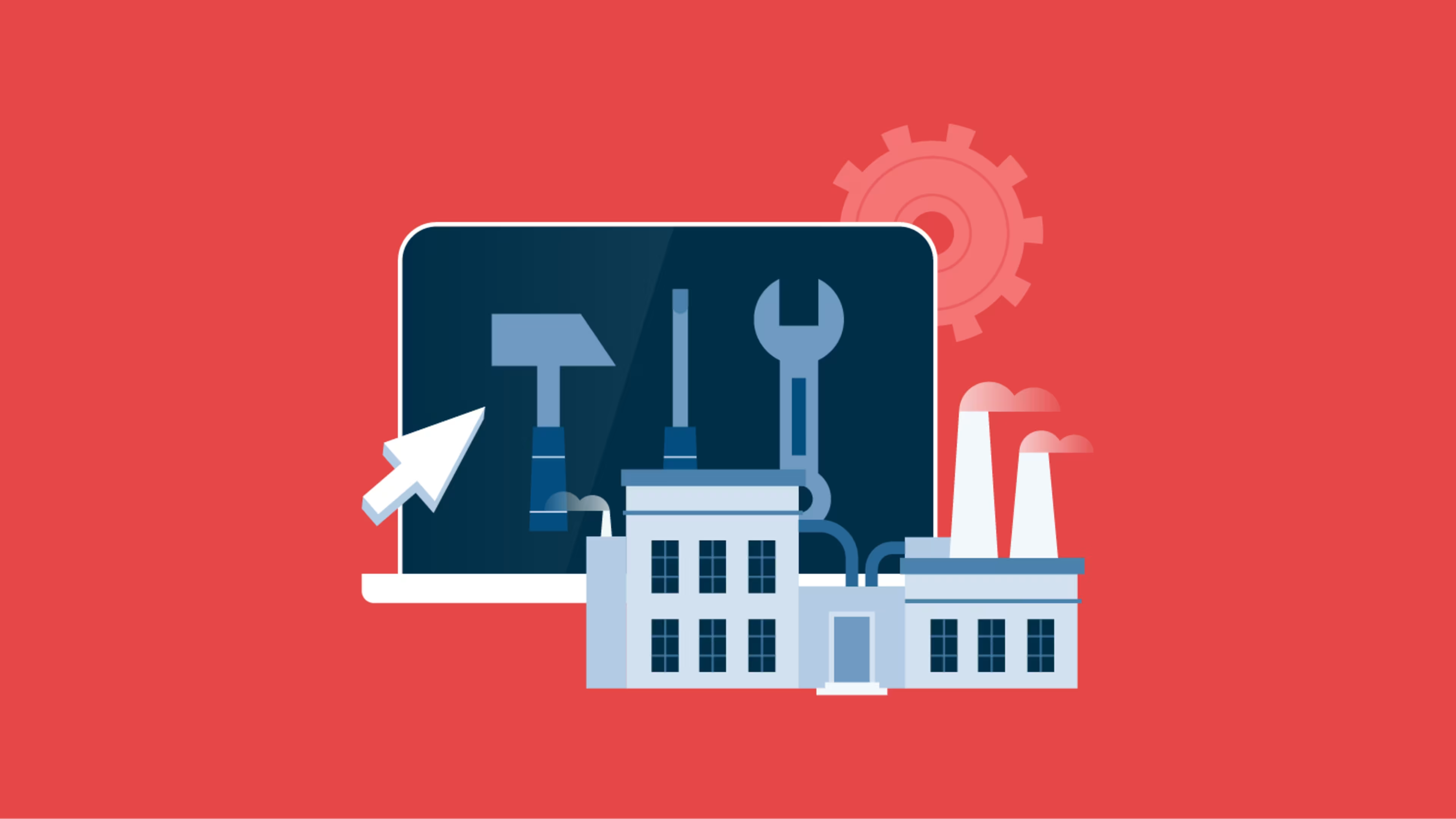Learn why you need these five software types if you’re an LBM manufacturer.
Software can have a tangible effect on all aspects of a lumber and building materials (LBM) business.
Whether you’re a composite roofing, vinyl siding, or fiber cement siding manufacturer, the right software can help you provide top-notch service to customers and employees, create interactive environments for customizing orders, and increase sales and improve profits.
Let's explore five of the most essential types of software for building materials manufacturers and how each can help with things like streamlining planning and resource management, data tracking to improve conversion rates, and more.
1. Enterprise resource planning (ERP) software: the do-it-all tool
Most large-scale material manufacturing businesses that must coordinate across multiple departments and worker shifts need strong ERP software to survive in this day and age.
ERP software can be thought of as the do-it-all tool for your manufacturing business. It’s the glue that holds everything together. ERP software features include:
Accounting
Procurement
Project management
Risk management
Compliance
Supply chain management
Using ERP software, materials manufacturers can plan, budget, predict, and report on their company’s performance. Businesses can also use ERP software to help set schedules and keep track of payroll.
To maximize the benefits of ERP software, look for a system that is compatible with other specialized software programs to help tie business processes together and ensure continuity across departments.
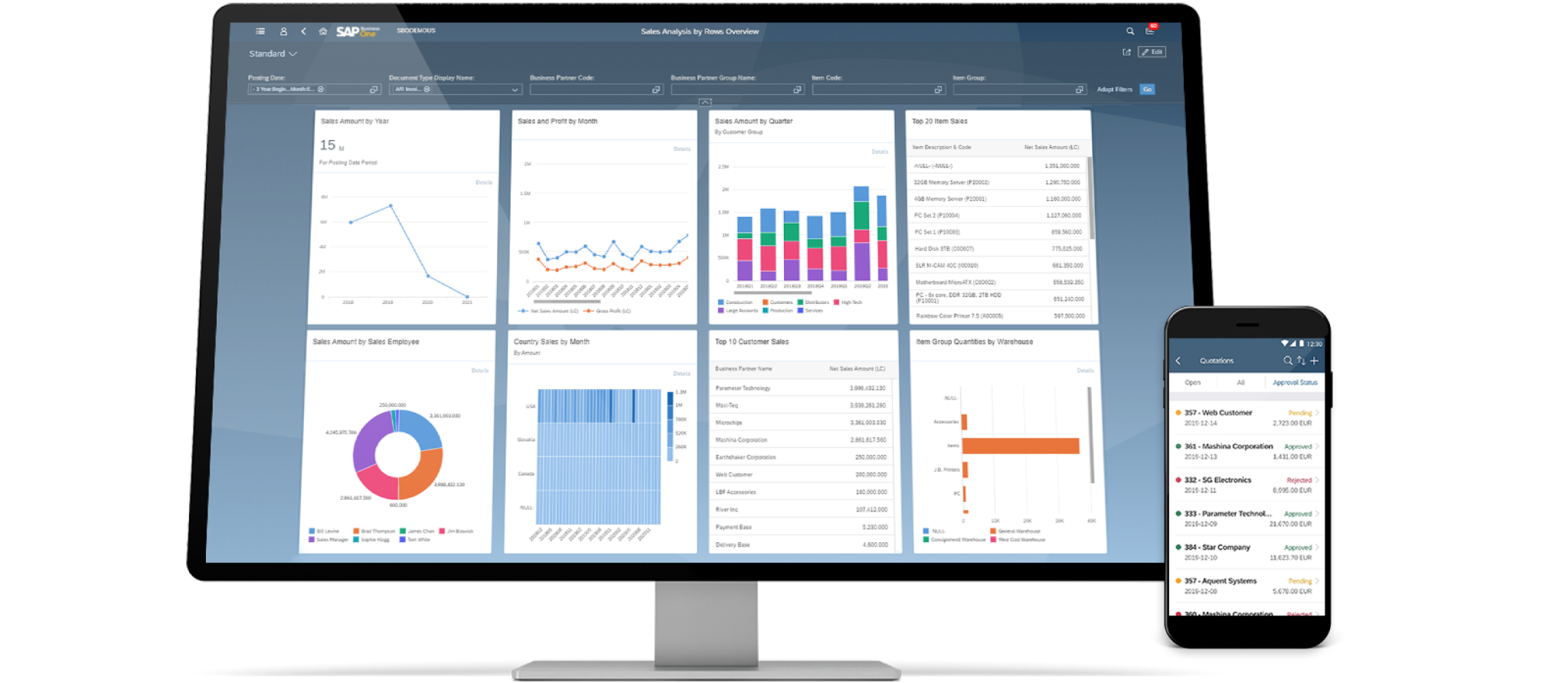
Charts in ERP software SAP Business One (Source)
2. Inventory management: keep better track of manufactured products
Some ERP programs include inventory management features, but building materials manufacturers may need specialized inventory software due to the sheer bulk of products they are likely to ship.
Industry, commercial, and residential construction generates roughly $1.23 billion for the American economy each year, meaning the flow of building materials from manufacturer to construction sites is continuous and large-scale to keep pace with demand.
Inventory management software helps count and automatically track the materials your company makes, buys, stores, and ships. This is particularly beneficial for manufacturers of roofing tiles, steel siding, and any other type of high-quantity product that can be difficult to track manually.
Inventory management tools can also help reduce inventory costs by helping warehouse and distribution professionals quickly locate, pick, pack, and ship products. They can also provide insights into seasonal purchasing trends so you can ramp up production during high volume times to avoid costly stockout situations.
For example, construction typically increases during the warm weather months of summer and early fall. Manufacturers can use inventory software to analyze the truth of this historical trend for their business and adjust production accordingly.
Download Now
Ready to explore inventory management software? Check out these top options.
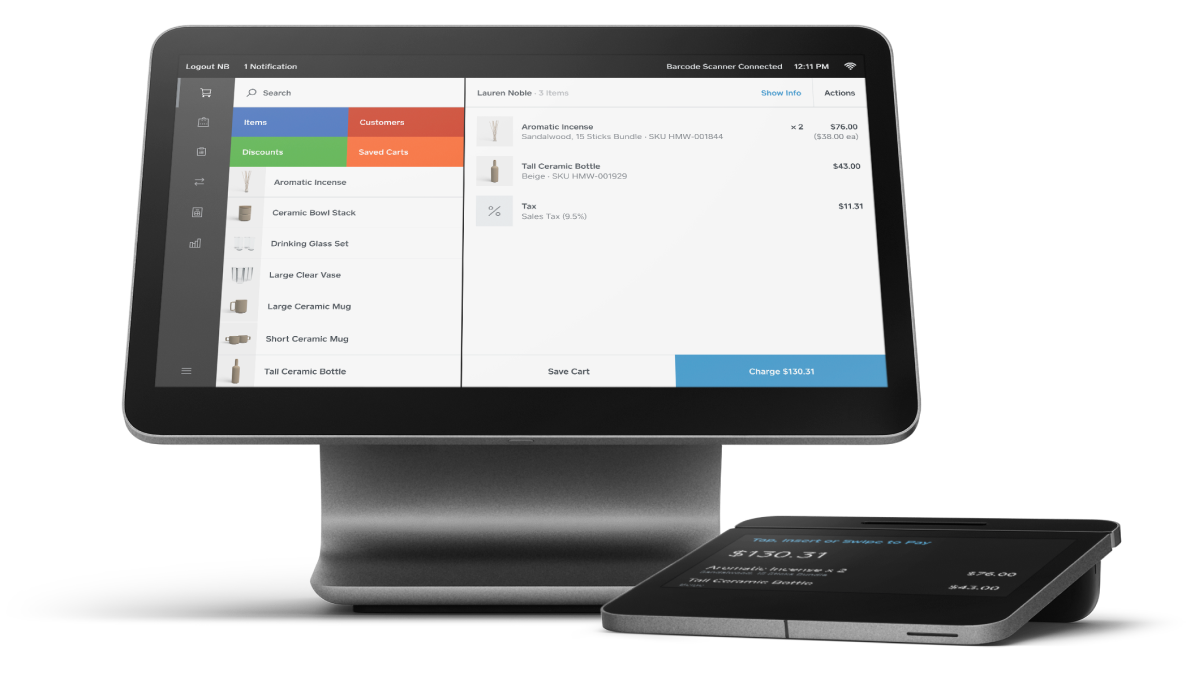
Interface of inventory management software option Square for Retail (Source)
3. Store locator: connect clients with local vendors
The best store locator software quickly connects shoppers with the location of the nearest in-person vendor. This is extremely important for multi-location manufacturing businesses that sell their products via select retailers.
For example, if your product is sold at Home Depot, you wouldn’t want customers going to Lowe’s expecting to find it and being forced to defect to a competitor when they can't find it.
Key locator software features include:
GPS tracking to automatically route customers to the nearest outlet from their computer or mobile device.
Branded local pages so that clients can easily recognize storefronts from a streetside or parking lot view.
Real-time inventory data for each location.
Contact information for the nearest vendor or sales professional for more relevant, personalized follow-up.
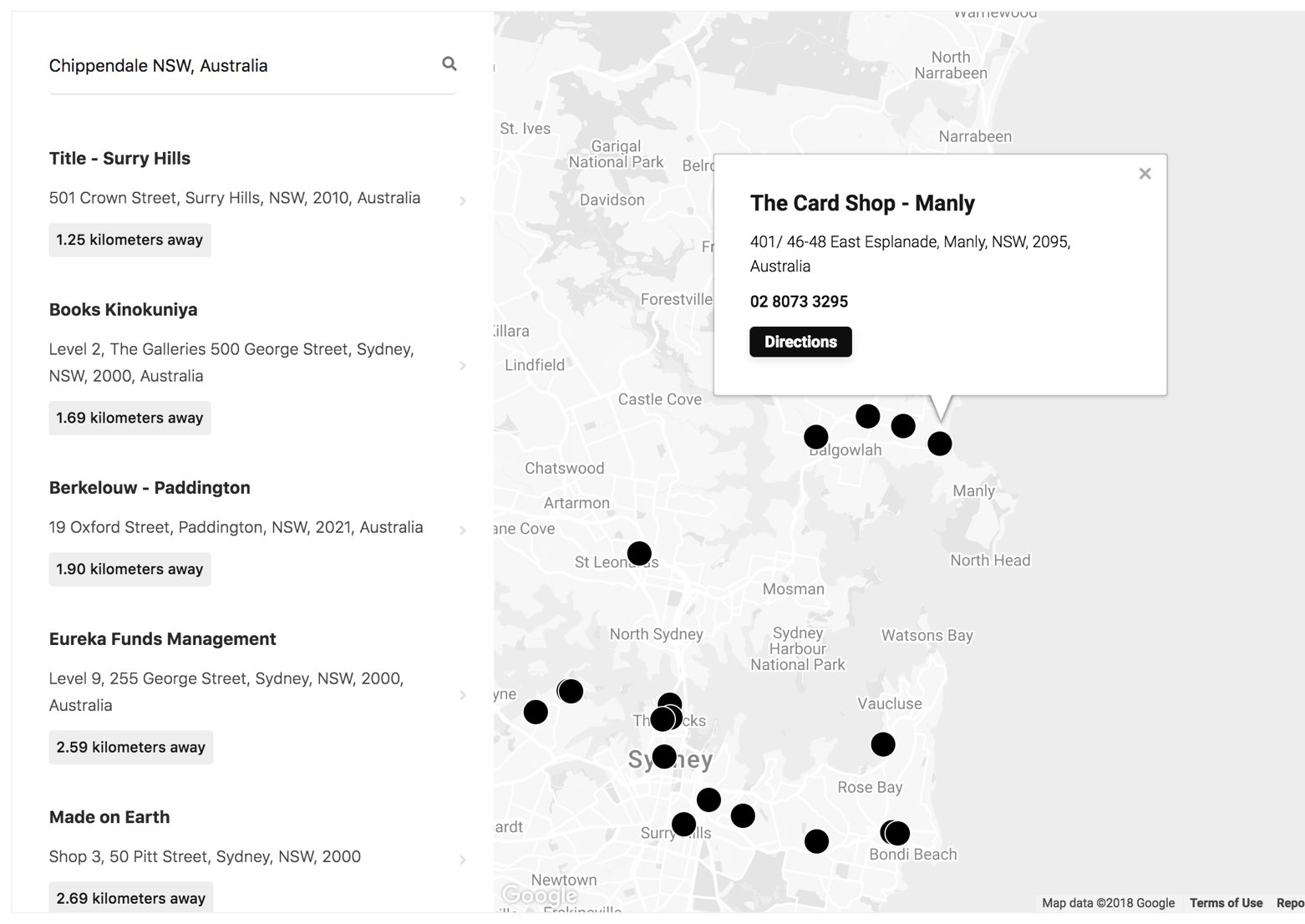
Store locations and a map of results in store locator software StoreRocket (Source)
4. Point of sale: add convenience to the checkout process
To handle direct-to-customer and curbside pickup orders, your website must be equipped with point of sale (POS) software.
POS software can be added to your website’s eCommerce store (think product page) and helps customers create shopping carts and check out.
Traditional POS systems perform functions such as barcode scanning and SKU lookup, processing credit card transactions, registering discounts and loyalty points, issuing and redeeming gift cards, and processing refunds.
Modern POS software must provide all of these functions while also syncing with online transactions and providing infrastructure for other types of digital payments.
Download Now
Ready to explore point of sale (POS) software? Check out these top options.
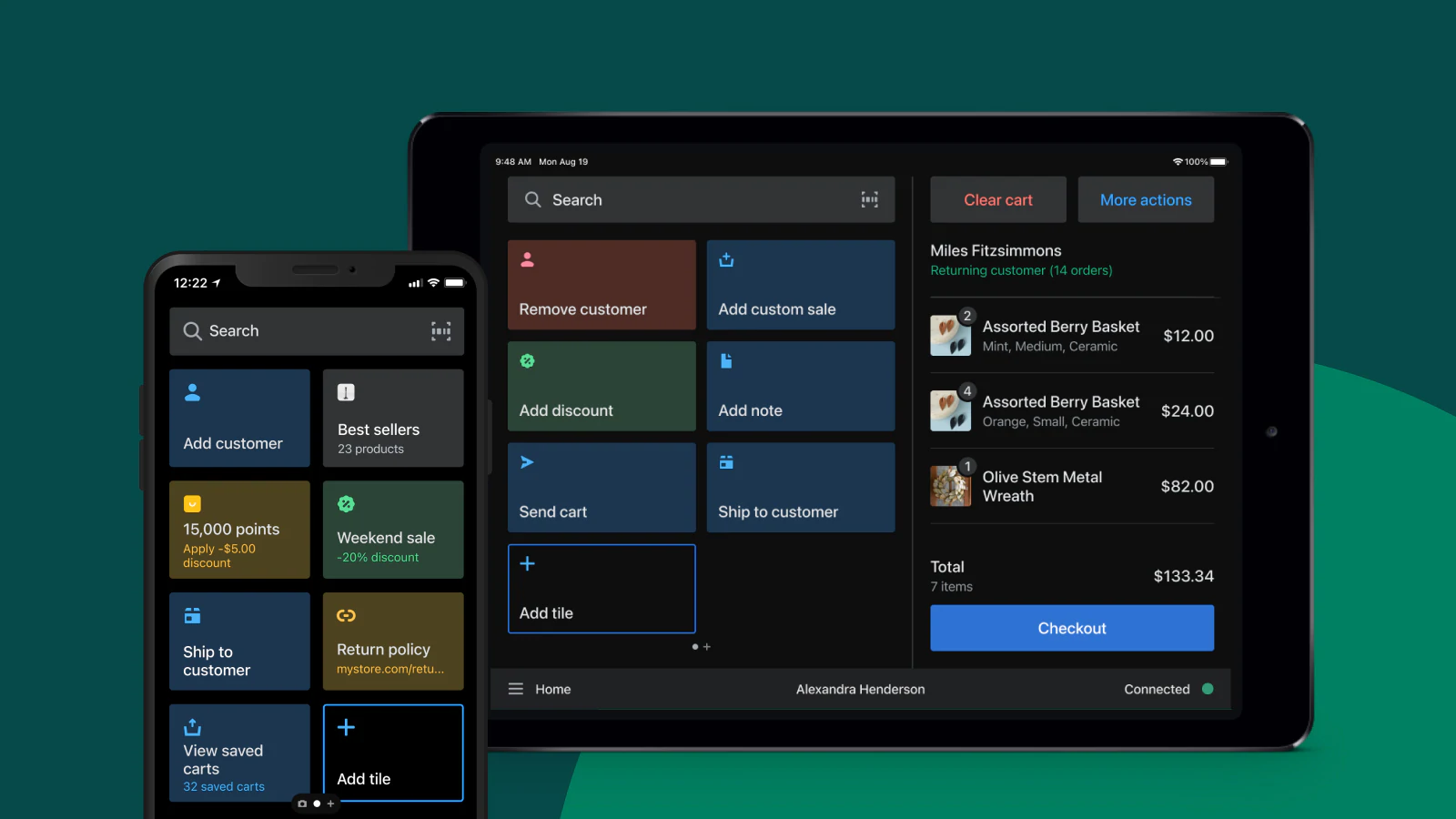
Shopify POS' interface on various devices (Source)
5. Customer relationship management (CRM): collect actionable customer data
CRM software connects different departments in your company—from marketing to production to customer service—and allows them to organize their notes and activities in one location. These tools can also record customer interactions to share across relevant departments.
By using data compiled, saved, and shared in a CRM solution, your manufacturing business can obtain actionable metrics for how to best serve your clients.
The benefits of leveraging CRM software include:
A comprehensive view of your customers and leads so you can see which channels are generating the most paying customers, which helps maximize ROI.
Contact management and email integration to create more focused marketing campaigns.
A streamlined process for opportunity tracking, follow-up, and cross-selling to make repeat customers more profitable.
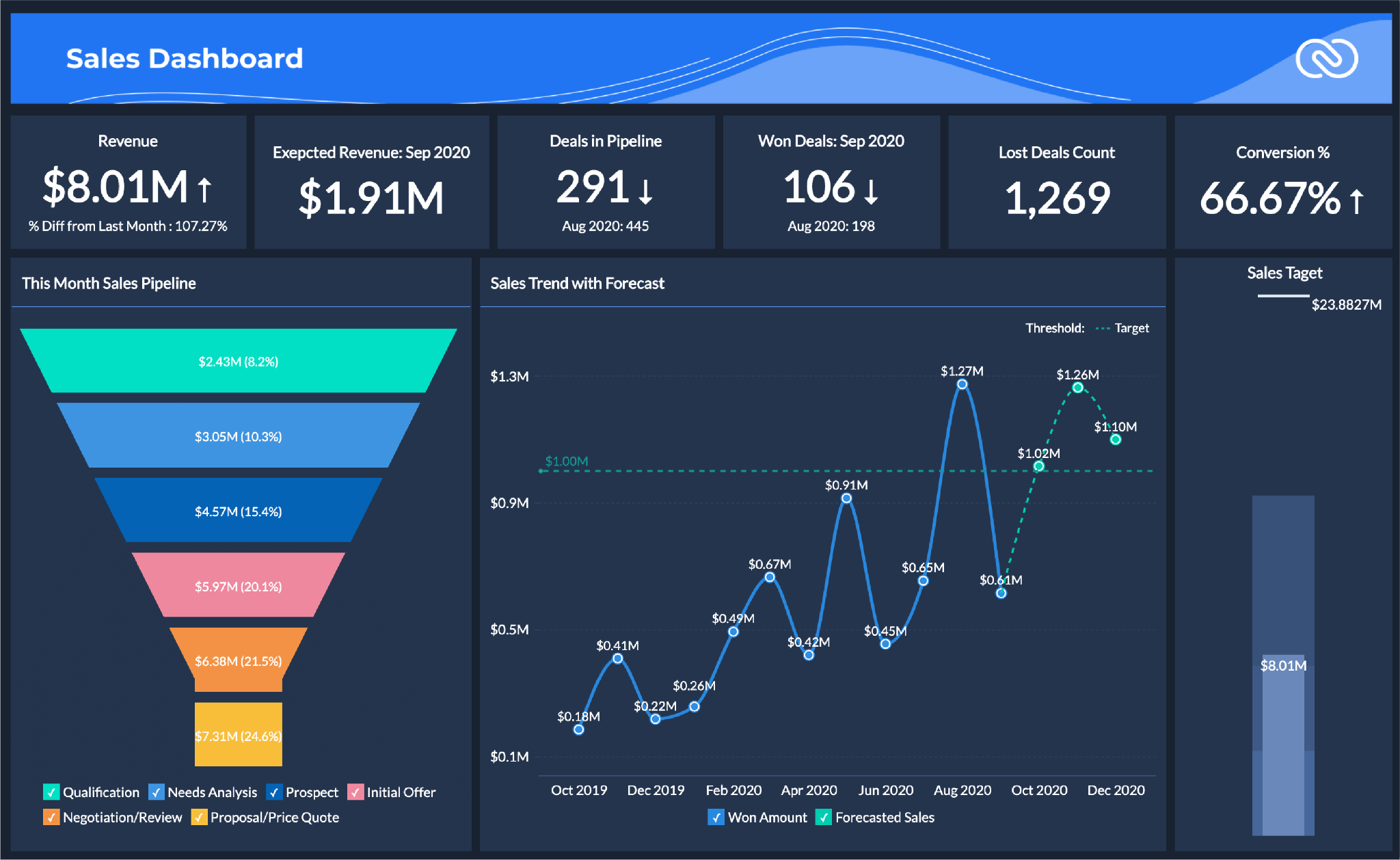
A sales dashboard in Zoho CRM (Source)
Use these tools to improve business profitability
Software is changing the way businesses operate in the hybrid commerce era. The building materials industry is no exception.
The best software programs can help improve all aspects of your LBM business, from manufacturing to marketing, warehousing, and sales. When exploring essential software for your business, remember:
ERPs can streamline planning and processes
Inventory management software helps keep better track of manufactured products
Store locators connect clients with local vendors
Point of sale software adds convenience to customer checkout
CRM tools compile and analyze customer data
Want more advice on choosing the right software? Check out our tips to avoid choosing the wrong tool.
Are you interested in becoming a guest writer for Capterra? Reach out to guestcontributors@gartner.com for details.
Note: The applications selected in this article are examples to show a feature in context and are not intended as endorsements or recommendations. They have been obtained from sources believed to be reliable at the time of publication.
